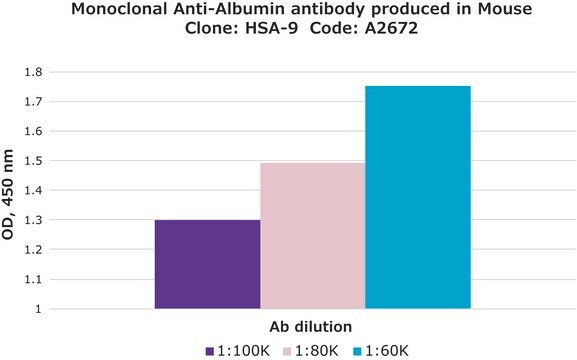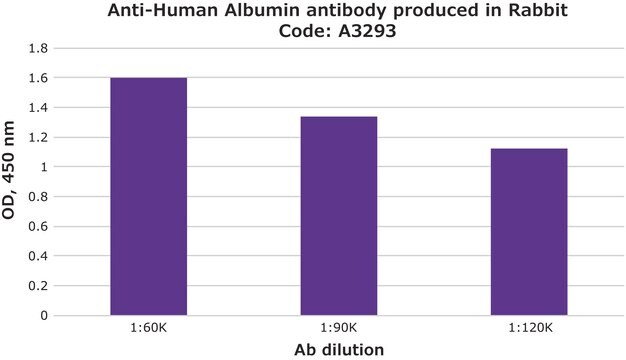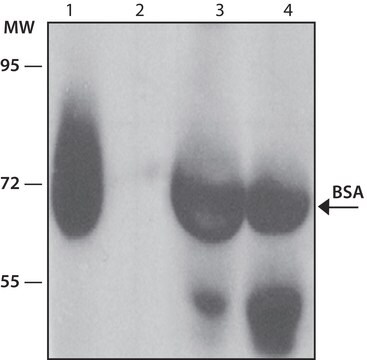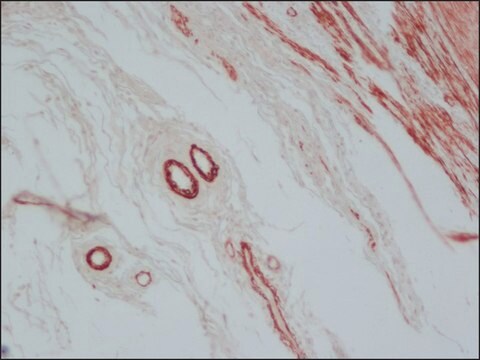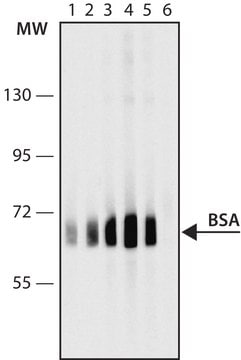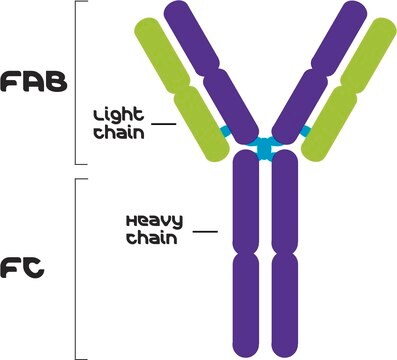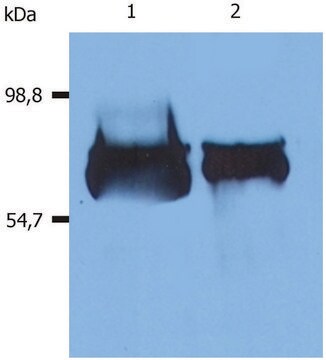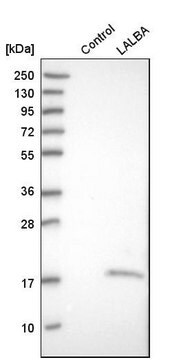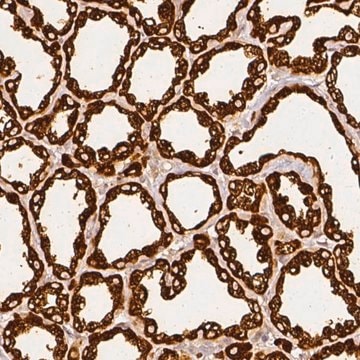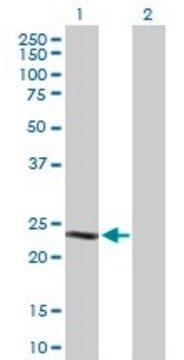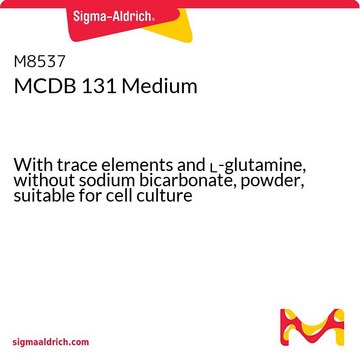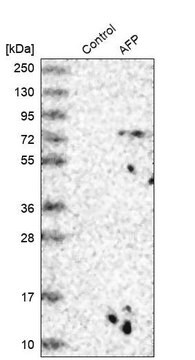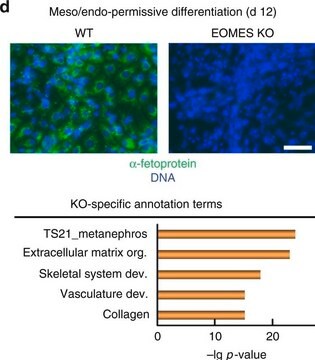A6684
Monoclonal Anti-Albumin antibody produced in mouse
clone HSA-11, ascites fluid
Synonyme(s) :
Anti-AFP
About This Item
Produits recommandés
Source biologique
mouse
Niveau de qualité
Conjugué
unconjugated
Forme d'anticorps
ascites fluid
Type de produit anticorps
primary antibodies
Clone
HSA-11, monoclonal
Contient
15 mM sodium azide
Espèces réactives
gibbon, baboon, human, rhesus monkey
Ne doit pas réagir avec
turkey, feline, hamster, pigeon, rat, marmoset, pig, bovine, canine, donkey, guinea pig, rabbit, chicken, sheep, goat
Technique(s)
immunohistochemistry (formalin-fixed, paraffin-embedded sections): suitable
indirect ELISA: 1:10,000
western blot: 1:5,000
Isotype
IgG2a
Numéro d'accès UniProt
Conditions d'expédition
dry ice
Température de stockage
−20°C
Modification post-traductionnelle de la cible
unmodified
Informations sur le gène
human ... ALB(213)
Description générale
Spécificité
Immunogène
Application
- immunofluorescence
- staining
- double staining
- enzyme-linked immunosorbent assay (ELISA)
- immunoblot
- immunohistochemistry
Actions biochimiques/physiologiques
Clause de non-responsabilité
Vous ne trouvez pas le bon produit ?
Essayez notre Outil de sélection de produits.
Code de la classe de stockage
13 - Non Combustible Solids
Classe de danger pour l'eau (WGK)
WGK 1
Point d'éclair (°F)
Not applicable
Point d'éclair (°C)
Not applicable
Certificats d'analyse (COA)
Recherchez un Certificats d'analyse (COA) en saisissant le numéro de lot du produit. Les numéros de lot figurent sur l'étiquette du produit après les mots "Lot" ou "Batch".
Déjà en possession de ce produit ?
Retrouvez la documentation relative aux produits que vous avez récemment achetés dans la Bibliothèque de documents.
Les clients ont également consulté
Notre équipe de scientifiques dispose d'une expérience dans tous les secteurs de la recherche, notamment en sciences de la vie, science des matériaux, synthèse chimique, chromatographie, analyse et dans de nombreux autres domaines..
Contacter notre Service technique